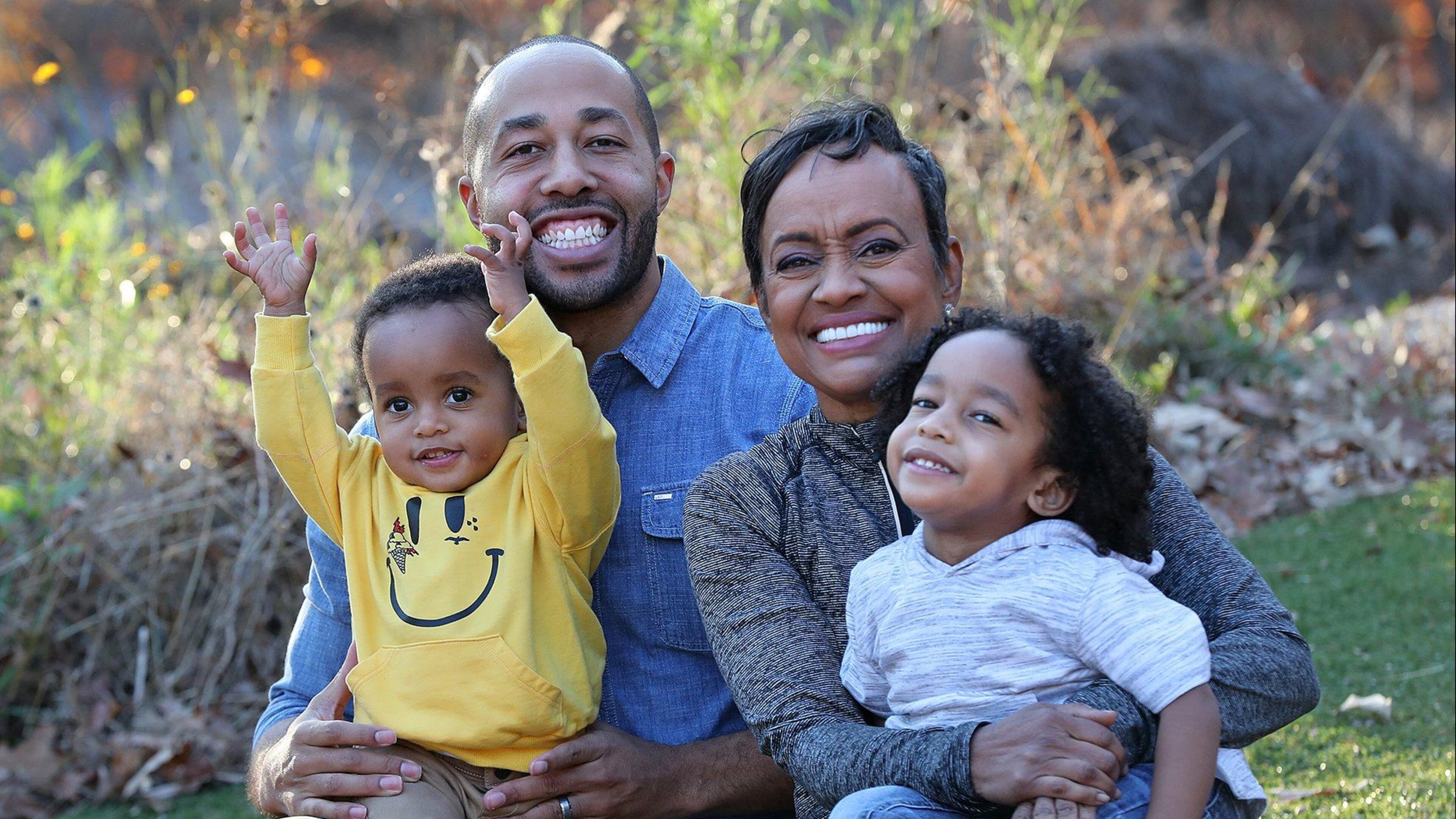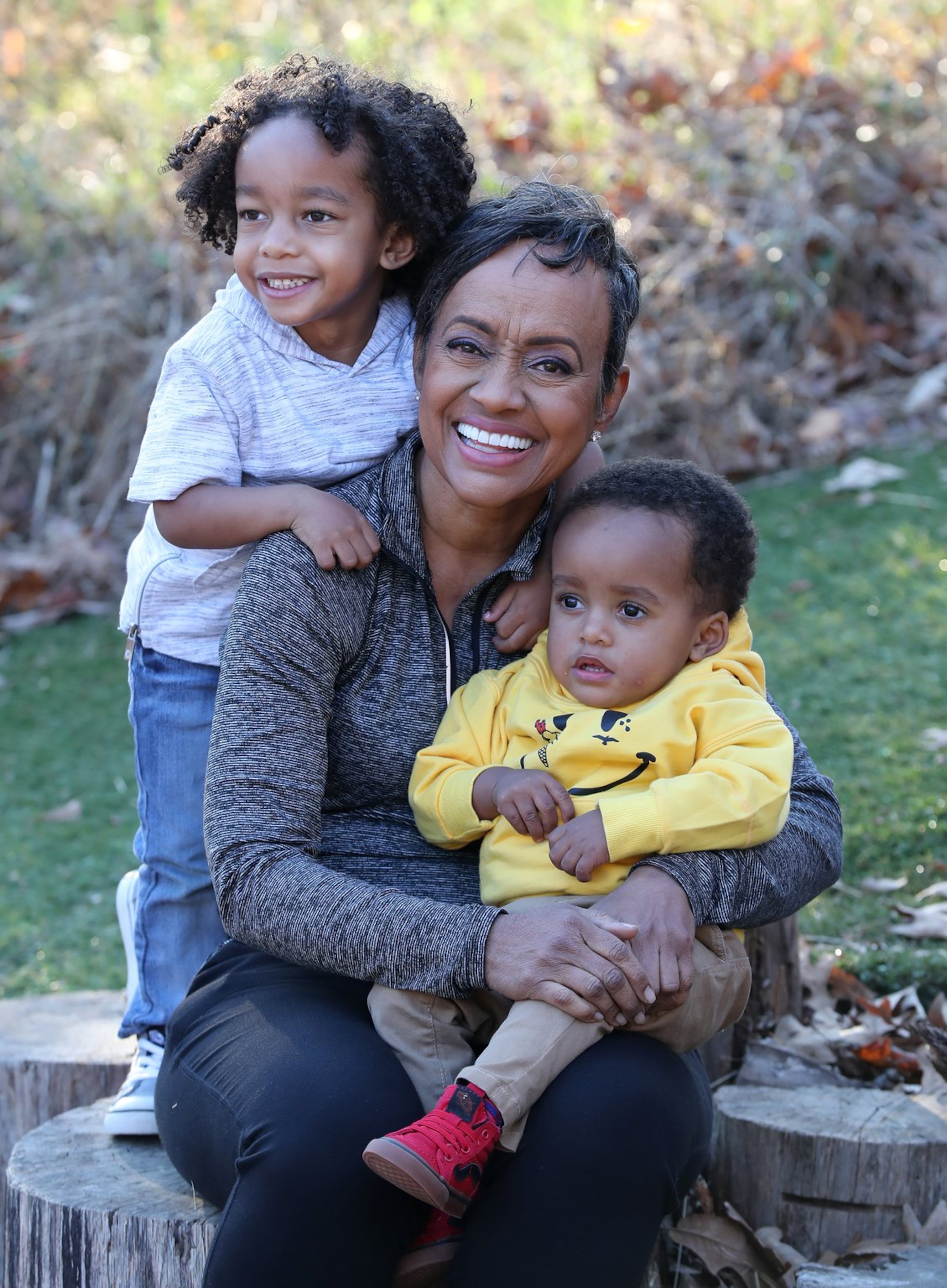TV Judge Glenda Hatchett and son fight for lives of new mothers

Tattooed in black ink above Charles Johnson IV’s wedding band is the name Kira.
On the other side of his finger is one word: “Forever.”
He got the tattoos on his second wedding anniversary.
Charles and Kira Dixon Johnson’s lives together were supposed to last until both were old and gray. They would travel the world and watch their children and grandchildren grow.
At 2 a.m. on April 12, 2016, a joyous Kira Johnson arrived at Cedars-Sinai Medical Center in Los Angeles to deliver the couple’s second child.
She never left.
Twelve hours after delivering her son Kira Johnson, 39, died from complications of what should have been a routine, scheduled C-section.

“This being our second go-round as parents, it was supposed to be a walk in the park,” said her husband, who has since moved back to Atlanta. “Something that was really just supposed to be an amazing celebration turned into a nightmare.”
Today, he and his mother, Judge Glenda Hatchett, star of “The Verdict with Judge Hatchett,” are raising Charles Johnson the fifth, 3, and Langston, 1.
“She had a great pregnancy,” said Charles Johnson. He said his wife and unborn son were both healthy.
The couple had done their research. Cedars-Sinai was one of the best hospitals in the nation. The doctors had great reputations.
Their families came to California to celebrate the birth. In the end, they planned a funeral.
Related: Senate passes maternal death study proposal
Related: Faye Wattleton: Champion for women's health
Johnson and his two sons are plaintiffs in a lawsuit against the hospital and several doctors alleging wrongful death and negligent infliction of emotional distress.
He also wants to make sure there are fewer Kiras in the world.
He has formed 4Kira4Moms, a nonprofit dedicated to honor Kira's life and to prevent other families from experiencing unnecessary birth-related deaths. Johnson and his mother recently participated in a congressional briefing on maternal mortality hosted by the Reproductive Justice Initiative.

“This is the most difficult thing I’ve ever faced in my life,” said Hatchett, tears welling in her eyes. “My father died very suddenly 24 years ago … My whole world changed. I was a daddy’s girl and I didn’t think anything was more painful than losing my father, but this is the most challenging journey because it’s not just my own grief.”
Hatchett was extremely close to Kira. She used to tease her daughter-in-law about how she could stay so tiny with such a voracious appetite.
Hatchett is angry and says this case is one of the most important in her career.
“How does this happen?” she said.
Maternal mortality a continuing problem in the U.S.
About 700 women die each year in the United States as a result of pregnancy or delivery complications, according to the Centers for Disease Control and Prevention.
The rate has risen from 7.2 deaths per 100,000 live births in 1987 to a high of 17.8 deaths per 100,000 live births in 2009 and 2011. The pregnancy-related mortality ratio in 2013 – the most recent year for which data are available – was 17.3.
Complications can arise if the staff is not adequately trained, said Sequoia Ayala, policy and advocacy program manager with Atlanta-based SisterLove. Ayala didn’t know specifics of Kira Johnson’s case.
“If a woman is not complaining specifically about a certain symptom, it may not get the attention it should,” she said. If a woman experiences a headache, for instance, it may be dismissed as lack of sleep or hormonal changes, but it could indicate a more serious problem. Also, when women go into the hospital to deliver a baby most attention is focused on the baby and not so much the mother, she said. Induced labor and C-sections may be necessary for some women, but “it’s not the best thing for the patient’s body at all times.”
Related: Georgia women share their #MeToo stories
What can’t be overlooked is the role race and gender play in the delivery of medical services, said Ayala “There are subtle things that happen in the delivery room and post-partum care settings that go beyond access to care. We do know that there is an inordinate number of black woman dying during or after delivery. Why is that?”
In a statement, Cedars-Sinai called Kira Johnson’s death “a tragedy,” and said, “Her husband, Charles S. Johnson IV, and his mother, Judge Glenda Hatchett, are demonstrating important leadership in raising awareness of preventable maternal deaths. Cedars-Sinai strongly agrees with Judge Hatchett and the American College of Obstetricians and Gynecologists that no mother should die giving birth.”
Related: Transgender woman digs out of her "sunken place" comes out to help others
Citing privacy laws, the hospital said it thoroughly investigates any situation where there are concerns about a patient’s medical care. “Based on our findings, we make any changes that are needed so that we can continue to provide the highest quality care to our patients,” the statement said. “This includes reviewing hospital procedures as well as the competency of healthcare providers. Among other changes, we have updated processes for post-anesthesia care and have increased simulation training for physicians, nurses and other healthcare professionals related to care of hospitalized obstetric patients.”
“The day my life changed forever”
Charles and Kira met in 2004 at a friend’s birthday party in Atlanta. “It was definitely something at first sight,” he said during an interview at his mother’s law office in the 191 Peachtree Tower. “She was just gorgeous,” he said. He gave her his number, never expecting her to call.
She did, a few days later. They met for lunch “and that was the day my life changed,” he said.
Kira Dixon was impressive. She spoke five languages including Spanish, French and Mandarin Chinese.
She was well traveled and adventurous. She could drive a race car, had a pilot’s license and skydived.
“She challenged me to be a better person in every aspect of my life,” said Johnson, who proposed to his wife during a vacation in the Dominican Republic. “I thought that I was a hard worker before I met her. She had just one gear — fifth.”

He still refers to her in the present tense as if she could walk in the room at any moment.
“Oh, she’s very much present in everything,” Johnson said. “Her legacy left its handprint in all of our lives. I talk to her daily.”
They welcomed their first child, Charles, in 2014 at Northside Hospital. Eventually, they decided to expand their family. The family was elated when they found out Kira was pregnant.
A perfect storm
On April 12, Kira went to the hospital to have Langston. After the C-section, the two seemed to be doing well. Charles was sitting next to Kira’s bed when he noticed blood in the catheter.
He alerted nurses, and they ordered a series of tests, including a CT scan.
“They seemed alarmed,” he said. “They said they were trying to figure out what was going on.”
Charles was worried, but he tried to stay calm for his wife’s sake. He noticed, though, that as time when on, Kira began to pale and she was in a lot of pain. Her condition continued to deteriorate. Kira fell in and out of consciousness.
About 10 hours after delivery, according to the lawsuit, Kira Johnson was taken to surgery . He said doctors told him right before the surgery that if they could not stop the bleeding they would have to perform a hysterectomy. “When doctors said that she sat up in bed and tried to get out,” he recalled.
According to the lawsuit, Kira Johnson was found to have three liters of blood in her abdomen.
As he walked back to surgery, his wife repeatedly said how scared she was. “In my heart, I’m concerned too, but I’m trying to stay calm for her. They said we’ll see what’s going on and I’ll be back in 15 minutes. that was the last time I saw Kira.”
Her heart stopped almost immediately. Doctors said her condition was critical but they were “still working on it.
“There was a lot of praying and pacing,” Johnson said. “In my mind, I’m thinking this is Kira, right? This is the closest person I’ve ever met to Superwoman.”
Kira didn’t make it.
There was silence. Then screaming.
An autopsy determined Kira Johnson died of “hemorrhagic shock due to acute hemoperitoneum,” which the lawsuit said doctors failed to properly diagnose and treat.
“This was not a medical tragedy,” Charles Johnson said. “It was a medical catastrophe. Everything that could go wrong, went wrong.” He wonders if his wife hadn’t been African American, perhaps “she would have gotten back to the operating room an hour or two sooner and that could have made a difference in saving her life.”
Before he lost his wife, Charles Johnson said, “I was like a lot of other people in this country — ignorant to the fact that this is happening to women. It’s a silent epidemic going on. There’s nothing I can do to bring Kira back, but what I can do is send other mothers home with their babies.”

